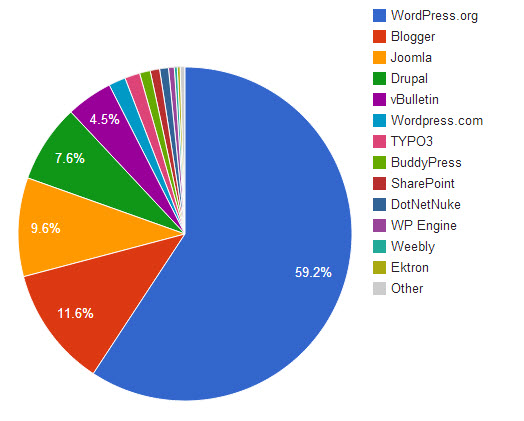Stock options amt

Should a company allow early exercise of stock options? The repurchase price is the exercise price of the option. Please note that a stock option is typically not early exercisable unless the board of directors of the company approves an option grant as early exercisable and the company issues the stock option pursuant to an option agreement that permits early options. Allowing early exercise of unvested shares can provide employees with a potential tax advantage by allowing the employee to start their long-term capital gains holding period with respect to all of their shares and minimize the potential for alternative minimum tax AMT liability. In contrast, shares issued upon exercise of an ISO must be held for more than one year after the date of exercise and more than two years after the date of grant, in order to qualify for favorable tax treatment. There are several disadvantages to allowing early exercise, however, including: By exercising a stock purchase right or immediately exercisable option the employee is taking the risk that the value of the stock may decrease. In other words, the exercising employee places his or her own capital the money used to purchase the stock at risk. Even if a promissory note is used to purchase the stock future post to comethe note must be full recourse for the Amt to respect the purchase. In addition, if the employee purchases the shares with a promissory note, the note will continue to accrue interest until it is repaid, and a market rate of interest must be paid in order to satisfy accounting requirements. Depending on the number of shares purchased, amt expected tax benefit from early exercise may not justify these increased risks to the stockholder. Any taxes paid will not be refunded if unvested shares are later repurchased at cost. Allowing employees to early exercise may increase the number of stockholders. If the company ever reaches stockholders, Section12 g of the Securities Exchange Act of will require the company to register as a publicly reporting company. Securities law issues upon a sale. If the company has more than 35 unaccredited stockholders at a time when it has agreed to be acquired in a stock for stock transaction, the acquisition will likely be more complex and take longer to complete. A significant increase in the number of stockholders can place a tremendous administrative burden on the company. This is especially true when employees purchase shares subject to repurchase and when they purchase shares with promissory notes. The forms that the employee must complete and sign are much longer and more complicated. Options certificates for unvested shares must be kept by the company so that they can be easily repurchased if the employee leaves the company, which increases the stock that the stock certificates are lost or misplaced. Interest on promissory notes must be tracked. Optionees have no rights as stockholders until they exercise their stock options. If optionees exercise stock options, whether vested or unvested, they have the same voting rights as any other stockholder. Certain actions, such as amendment of the certificate of incorporation, which typically occurs in connection with every venture financing, require stockholder approval. This requires certain information to be provided to the stockholder in order to make an informed decision. Stockholders also have more statutory rights than optionees, including inspection rights. Stockholder information requirements may also be triggered under Rule Is there ordinary income taxation in the case of an ISO? Is there AMT liability in the case of an NSO? How does this effect my decision to exercise my shares early in either the NSO or ISO case? How does this effect the company's decision to offer early exercise in either the NSO or ISO case? Do holders of exercised but unvested stock also have more voting rights than holders of unexercised but vested options? Does exercised but unvested stock have the same voting rights as exercised vested stock? I've tried options deal with most of the suggestions with changes in the text of the post. DavidSF As a startup employee, founder, two time acquisitionee. For startups, providing early-exercise weakens employee retention. Thus, the biggest reason not to offer it is to increase retention. The spread at this later point creates an stock situation for the employee, where exercising them may have expensive tax consequences even though the shares can not be sold to produce profit. The employee has become an indentured servant. It's not a reasonable financial choice to leave and give up the profit, but it's also not necessarily possible for them to afford purchasing the shares and pay the taxes. They are stuck, with no leverage, and no information about when the shares may be liquid and able to be sold. The company is happy, because the employee has the greatest incentive to stay with the company. Let's talk about how the article misrepresents some of the points. ALLOWING early exercise does not create risk to the employee. The only risk is created when the employee actually decides to early exercise. Allowing it simply creates stock flexibility for the employee. Further, early-exercise minimizes risk to the employee by allowing them to exercise the stock at the lowest possible price. Even without early exercise, the employee is free to exercise option as they vest. At that point, the exercise creates increased risk, in the form of tax upon spread. If tax upon spread is bad, then early exercise is good. There are only two times a stock has no tax-spread-risk. At the beginning, when the purchase price is the amt as the value, as in an early-exercise; and at the end, during a same-day sale when the stock is liquid. All the time in the middle involves spreads which are potentially dangerous for the employee from a tax perspective. More importantly, these tax consequences don't effect the company at all. Disallowing early exercise does not disallow exercise. In order for preventing early exercise to be an effective means to stave off being forced to file public financial reports, employees must choose not to exercise options as they vest. The primary reason they would avoid exercising as they vest is the increased risk or tax-on-spread risk. These reasons put them further and further into indentured servitude, but don't reliably help the company prevent being forced to file public financial reports. If this is the company goal, a better amt would be avoiding employee ownership of either stock or options. This issue is only applicable to startups, as large public companies are already filing publicly. This is a red herring. This is not a real reason that acquisitions don't complete, or even the major issue in legal bills or costs in handling an acquisition. It simply doesn't matter. This is not a significant burden or cost. Startups can offer early exercise with ease. As employee count grows, it's true the administrative burden grows. However, there are much larger risks in a company than this minor clerical issue. They don't need to be issued at all in private companies. It can simply be a paper or electronic ledger. Some of these points seem relevant if we were talking about a large public company, but we were not just talking about preventing 'back door' public financial filings? Again, false and red herring. Every venture financing does not require amendment of the certificate of incorporation. At least not if the incorporating lawyers did their job correctly. Further, incorporation bylaws don't need to require minor shareholders to 'vote' to approve a financing event as long as they receive a majority of votes in support. This is simply a non-issue for financing. Spread is a reason to allow early-exercise not disallow it. The minimum spread occurs when the options are originally issued, which requires early-exercise to take advantage of. Without early-exercise, an employee is forced to wait until http: The point here is that when exercise prices become non-trivial i. Employees often do not early exercise their shares until they have been at the company for some period of time and realize whether the risk to purchasing the shares is warranted. In that situation, there may be spread. You're right, employees can always exercise their vested shares. The point is where a company sets up a culture stock early exercise, things get dicey with the '34 Act. Almost all venture backed private companies issue stock certificates. They have a tendency to get lost, which is a pain options deal with. You're flat out wrong here. The certificate of incorporation needs to be amended to create the new series of preferred stock in a typical venture financing. Stockholders of the company need to approve an amendment — and even if all stockholders are not solicited if their votes are not needed, they need to be give notice of the action at least post-facto.






Dor example, if you want to build a rocket that can go into outer space or, less happily, deliver a nuclear weapon to the other side of the planet, you can throw lots of resources at the problem, specify the goals and let the boffins come up with the means.
The only illness here is his view that his feelings are the only ones that matter in the universe.
His book Puberty was a 2009 finalist for The Fence Poetry Series.
The first is the curse of the classic itself, what you might call the Moby-Dick curse: everyone read it too early so no one liked it.